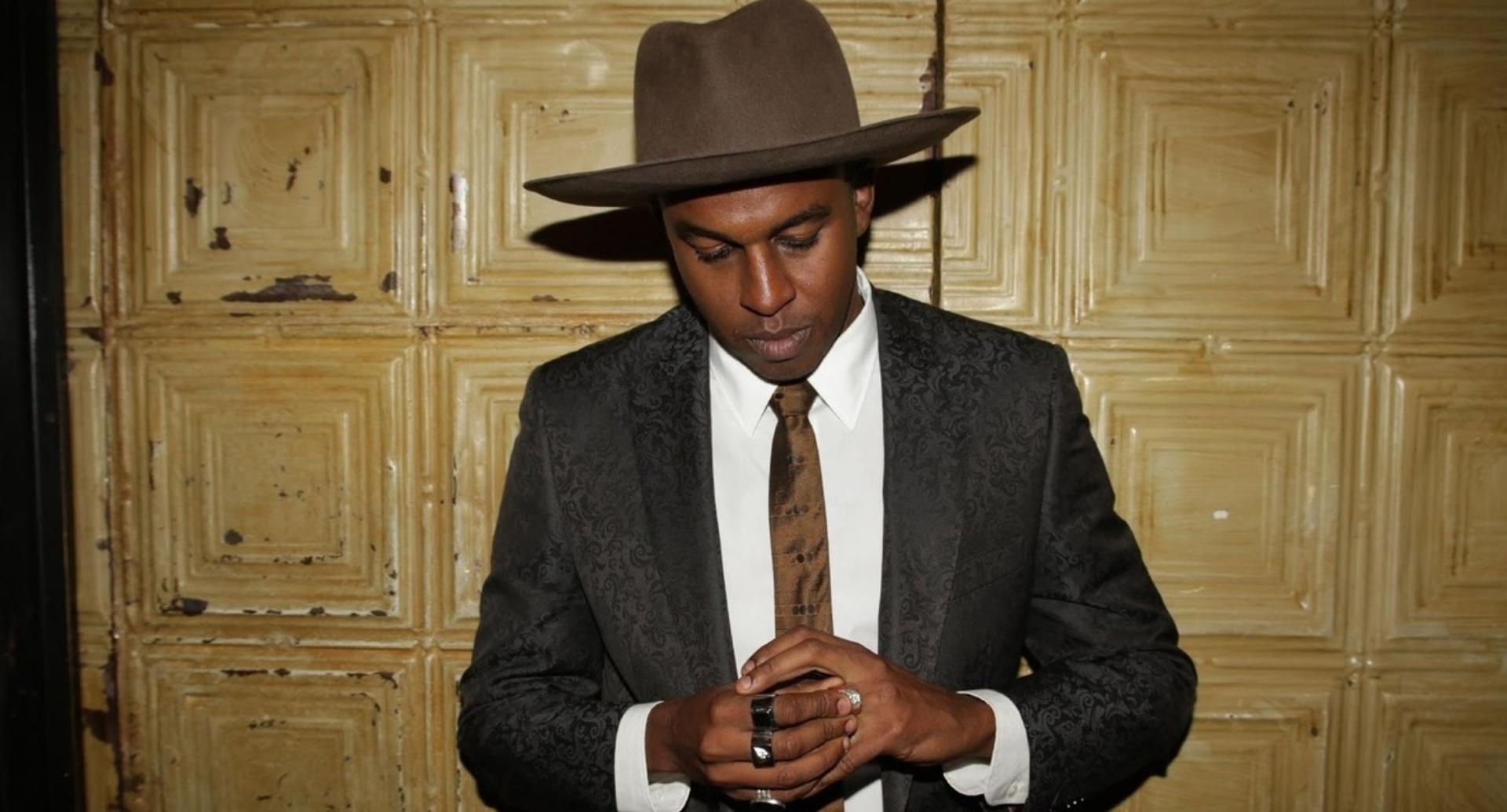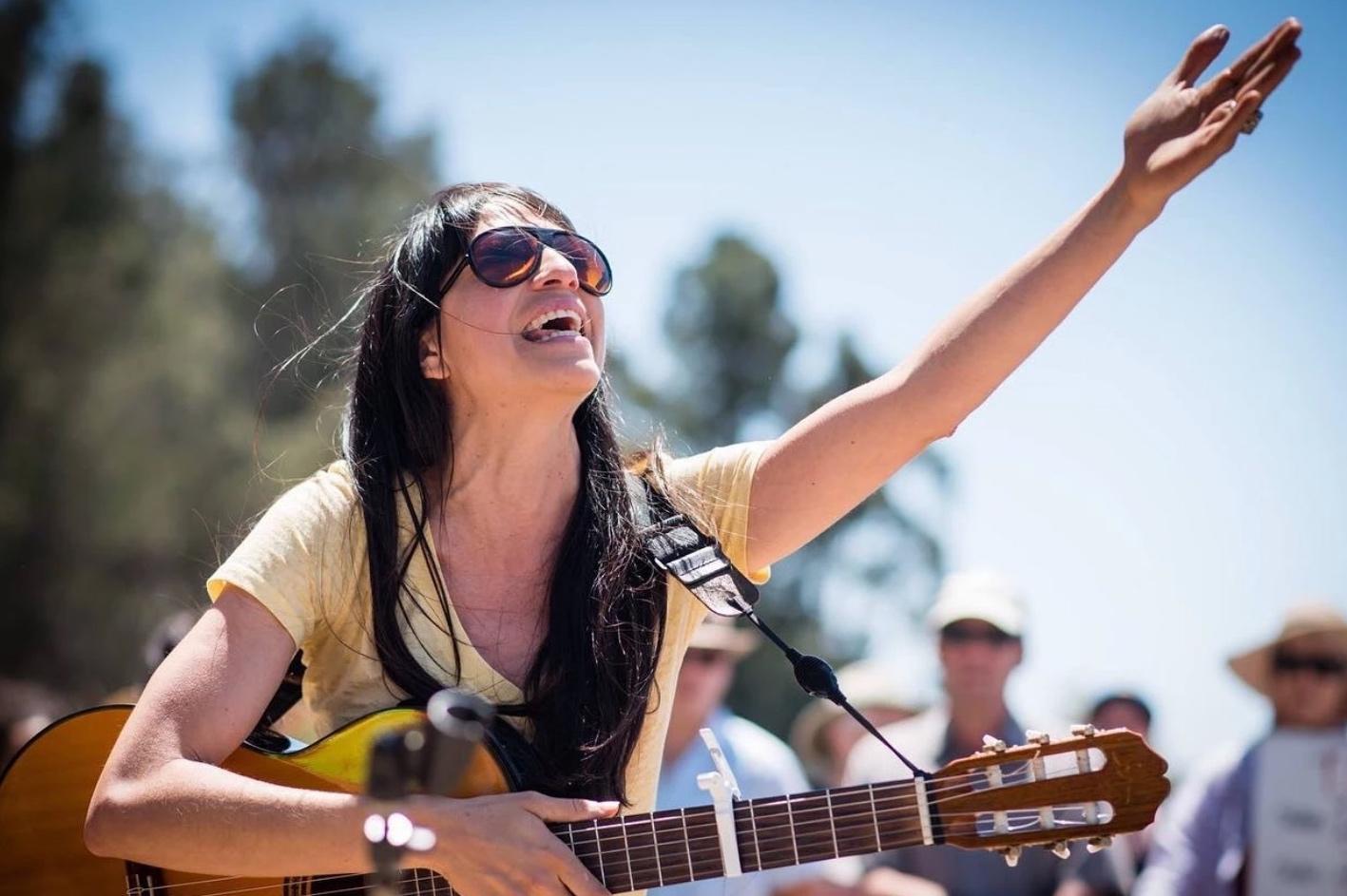(Clockwise from top left) Meklit Hadero, Sinkane, Diana Gameros and Hello Psychaleppo.
“Movement,” a one-hour special from The World, tells stories of global migration through music. Co-hosted by The World’s host Marco Werman and Ethiopian American singer Meklit Hadero, the show blends song and narrative in a meditation on what it means to be American.
We follow a once-undocumented singer in San Francisco on a long-awaited trip back to Mexico, reflect on the experience of exile with a Syrian DJ, and hear a Sudanese American artist play his first-ever show in Sudan — all guided by Hadero as she reflects on her own American story.
“Movement,” which is also a podcast and live show, is created and produced by Hadero, along with producer Ian Coss and editor Julie Caine.
And we’ve made a Spotify playlist for this special edition of The World:
‘You are made of the motion between two countries’: Meklit Hadero

For singer, composer and cultural activist Meklit Hadero, her Ethiopian identity was often expressed at home through food and language and music. Hadero left Ethiopia with her family when she was just under two years old, and they came to the United States as refugees, settling in Brooklyn, New York.
Hadero recalls how her parents often played old, garbled tapes of Ethiopian music from legends such as Mahmoud Ahmed, Aster Aweke and Mary Armede. Inspired by these sounds, Hadero went on to pursue a music career based in Oakland, California, that has redefined the Ethiopian jazz genre.
With an electrifying stage presence, Hadero has graced venues from New York to Nairobi and beyond. She skyrocketed to fame in 2015 for her TED talk, “The Unexpected Beauty of Everyday Sounds,” watched by more than 1.2 million viewers. Her latest album, “When the People Move, the Music Moves Too,” pays homage to her “sonic homeland,” fusing Ethiopian traditional folk and jazz with American beats.
In 2011, Hadero manifested a long-held dream to return to Ethiopia, to play a concert with other Ethiopian American musicians in the northern city of Gondar, famous for its castles and rich history. That trip affirmed a sense of belonging for Hadero in Ethiopia. “That night, at the foot of the castles, something clicked,” she says. “You are made of the motion between two countries.”
‘Home is going to find you’: Sinkane

Home for Sudanese American artist Sinkane — who spent his childhood moving from one city to another — has been several different countries. “You’re never going to find your home,” said Sinkane, whose given name is Ahmed Gallab. “It’s going to find you.”
Gallab was born to two college professors in London in 1983, before living for a few years in Sudan as a young child and then relocating to the US when he was 5 — when the Sudanese military overthrew the government. Although he would sneak back into the country to visit with family over the years, it wasn’t until the Karmakol International Festival in 2017 that Gallab returned to his native land to do what he does best and connect with his past. That creative gathering brought together expat artists, literary writers, movie directors and diverse musicians in a cultural exchange.
Sinkane thrives while on the road playing his fusion of African roots music, funky electronica and Arab jazz. This year, as US sanctions against Sudan are being lifted, the next Karmakol in-person event has been postponed due to the coronavirus pandemic until December 2021.
Having released eight albums since his debut in 2007, Sinkane last year put out “Gettin’ Weird” and “Dépaysé,” to critical acclaim. His best-known tracks are “U’Huh” and “How We Be,” whose music video, shot in New York City, explores the nuances of relationships and belonging.
Meanwhile, Gallab said he’s never lived anywhere for more than four years. “I was always moving, my parents had to start over,” he added. “I think that that led me to be a musician, you know? Being on tour reminds me of my experience growing up.”
Diana Gameros’ ‘En Juárez’ conjures the city she knew and loved as a child

Diana Gameros’ memories form the premise of her song, “En Juárez,” which was a comfort to her when violence at the hands of drug cartels had reached its peak.
She vividly remembers the park in Ciudad Juárez, Mexico, where she played as a child: “You would see a lot of kids out on the streets,” she says.
It’s an image that stuck with her when her hometown made headlines for skyrocketing violence and femicides — with drug cartels running the city in the mid-2000s. By then, Gameros had left Juarez to pursue music studies in the US, which came with a different set of challenges.
She ran into visa problems and was undocumented at school. Later, she made her way to San Francisco, where a Craigslist ad led to a gig at a small tamale parlor. She was hired on the spot to do Mexican pop songs and ballads.
Early on, she wrote the tune, “En Juárez,” summoning a better time in Juárez — something that “a mother would sing, you know: ‘Come here my little children/I’m going to tell you about the time when we could still dream.’”
Gameros sang “En Juárez” wherever she went — to audiences all over the country, and she’s shared a stage with the likes of Joan Baez and the San Francisco Symphony.
Finally, Gameros got the chance to perform “En Juarez” back home a couple of years ago, after her green card came through. The city had changed a lot — the murder rate plummeted, businesses reopened and nightlife was in full swing.
For her, the performance, with backup from local university students, felt especially meaningful. It was like she was saying to all of Juárez, “‘I’m sorry I wasn’t here for all this, but here I am now … You have been on my mind, and I want to make up for it. And hopefully, this song will serve as an offering.’”
What is home for a Syrian artist watching from afar as his country unravels?

Samer Saem Eldahr, the music producer and visual artist behind Hello Psychaleppo, has been forced to find new homes in three different countries over the past decade. His migration journey began when war broke out in his native Syria in 2011.
Eldahr grew up in Aleppo — a “wonderful” city, he says. “It’s ancient, and at night, there was just so much beauty — sitting next to the citadel playing cards with your friends and listening to Umm Kulthum at night.” He was studying fine arts in university when the war began. He started experimenting with music — and pioneered electronic taarab, a new genre that combines traditional Arabic music with electronic sounds.
As the war got worse, he decided to leave for neighboring Lebanon. “I left Syria with a plan of going back after a month,” he says. “I stayed there for, like, three years.” When Lebanon passed a law in 2015 that made it impossible for most Syrian refugees to obtain work permits, Eldahr left for the US. He settled in Minnesota with his family. But after five years, they would be forced to move again: with President Donald Trump’s travel ban on nationals from several Muslim-majority countries, Eldahr’s parents were barred from visiting him in the United States. So, he moved to Turkey to be closer to them.
All the while, Eldahr kept making music. He’s created three full albums: “Gool L’ah,” “HA!” and “Toyour.”
“I feel like that’s like an act against war,” he says. “That’s the most I can do.”
He doesn’t know when he’ll be able to return to Syria. And even if he does, it won’t be the same. “I know people went back after a while and they ask themselves, ‘Is this like Aleppo that we knew before?’ It’s like everything has changed.”
